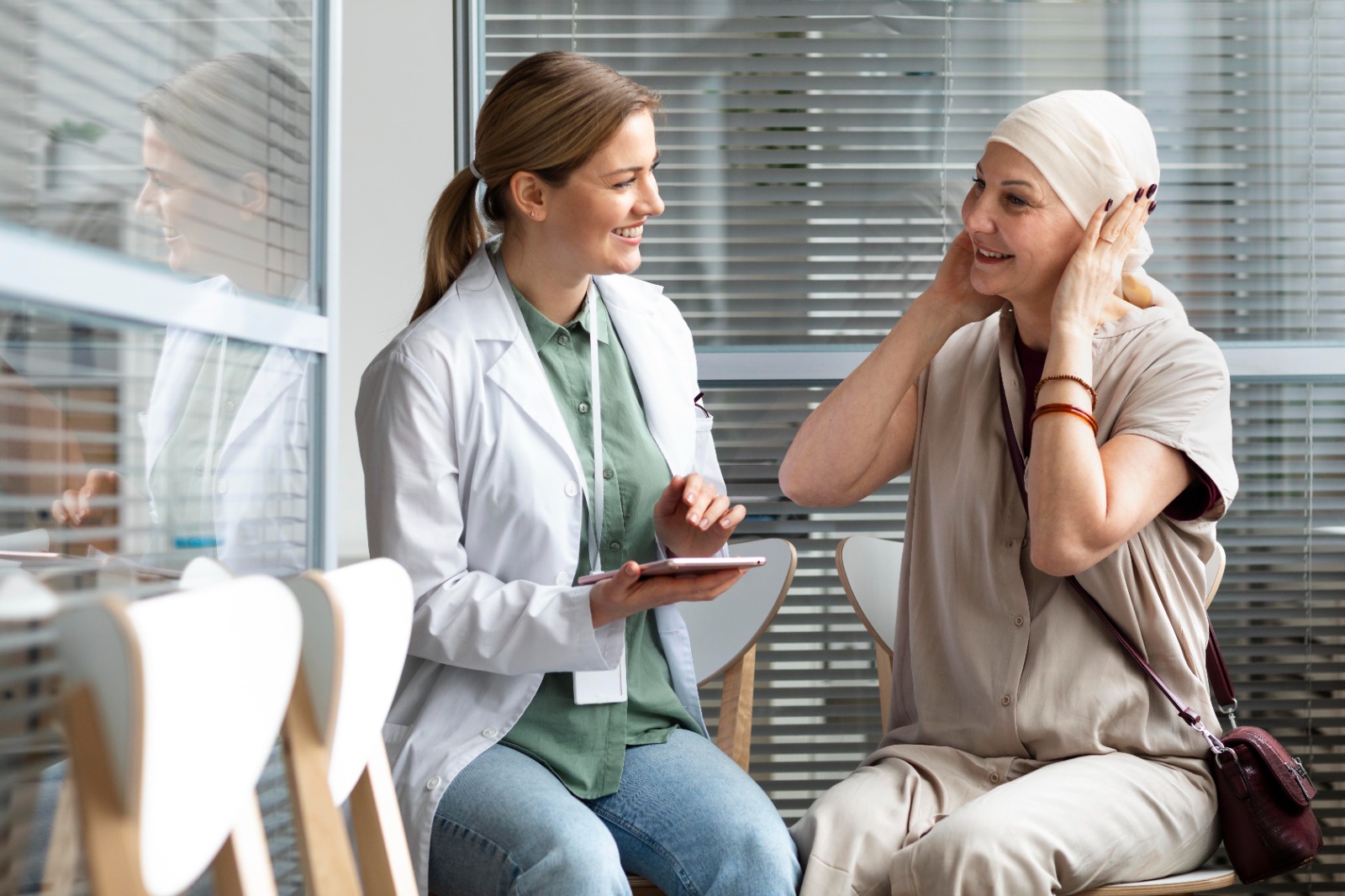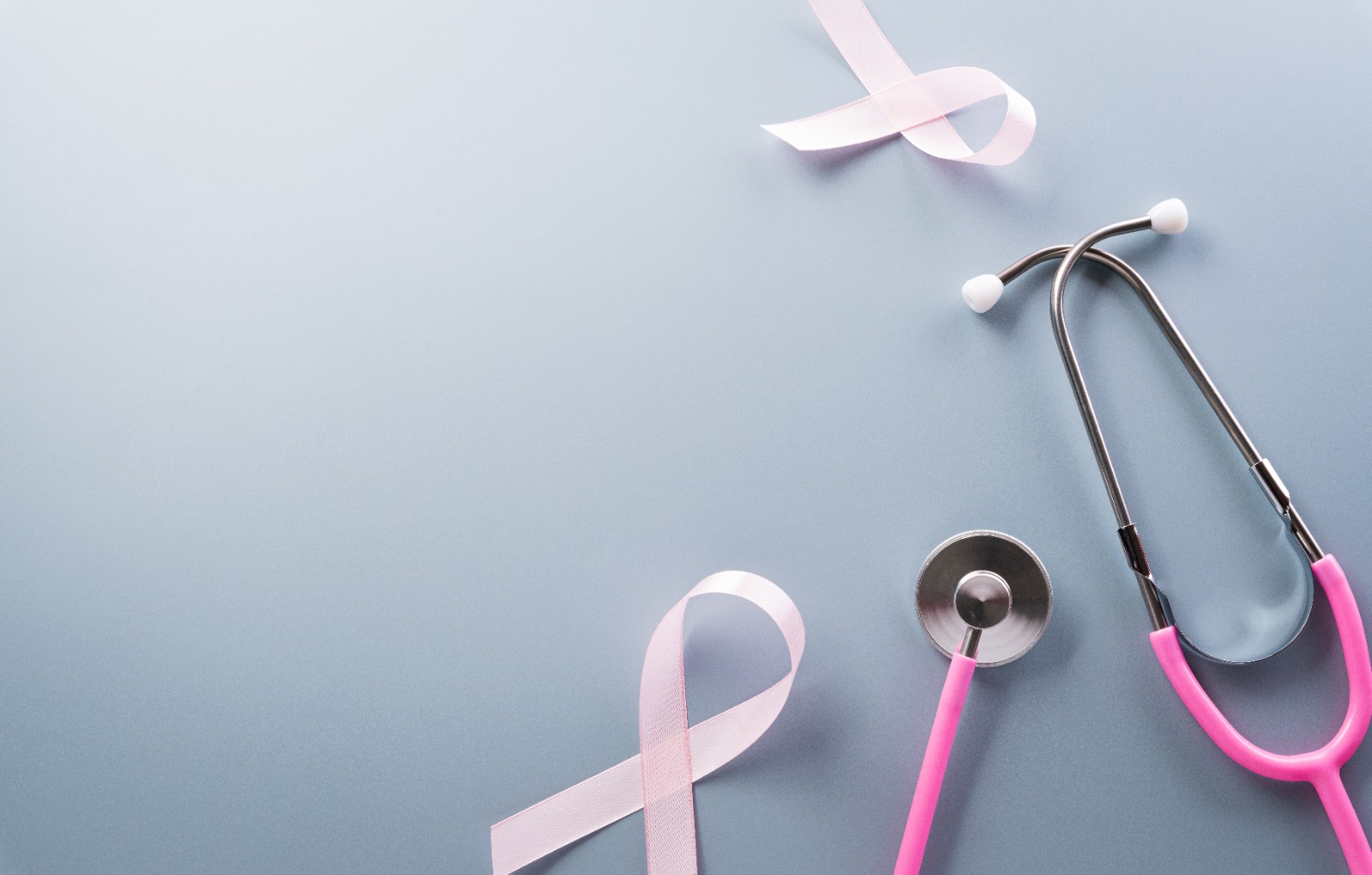Diagnosis
For those who believe they will be diagnosed with cancer or have received a positive breast cancer diagnosis, please consider the following:
- It’s important to have someone close to you (family or friends) with you when you are scheduled for a diagnosis or consultation appointment with your physician. Often the news can be overwhelming and it’s hard to concentrate, so it’s important to have someone with you to receive the same information you do at the same time.
- Often times it seems like time stands still when you’re waiting for a cancer diagnosis or treatment plan. It is hard to understand why consultation and treatment planning takes a long time to start. Express your concerns to your doctor’s office and request the soonest appointments available.
- In treating cancer, patients often have an entire treatment and care team. Don’t be surprised to find that the specialists (medical oncologist, surgeon and radiation therapist) might have different care plans. Open communication is important. Keep notes and bring them with you to each appointment. Often you’ll have to be your own advocate in your care, so make sure that your care team is communicating with each other.
- Join a support group early. You can join a group at any time, even prior to surgery, starting chemotherapy or radiation therapy. Support group members can offer advice and information that is important and meaningful from the very beginning. Meeting with others who have successfully overcome cancer can also be inspirational and help to put things into perspective. “When you hear the word ‘cancer’ you automatically think of death. Don’t lose hope, keep positive thoughts, don’t give up.”
- Remember that it’s okay to not want to talk about your cancer, treatment and recovery. Some people want to talk about it, some don’t. It’s important to know that you own your journey and you should do what you feel is most comfortable.
- Journaling can be helpful and important through this process. Keeping a journal can help you go through the process as well as reflect on and celebrate your success.
Chemotherapy
For those who will take part in chemotherapy treatment, the following advice is offered:
- Most can remember chemotherapy treatments of the past resulting in serious side effects such as nausea, vomiting and hair loss. However, today’s forms of chemotherapy and new nausea treatment medications have helped greatly reduce many of those symptoms. Some people actually undergo chemotherapy with no symptoms at all.
- It is helpful to ask and take note of the specific type and name of the chemotherapy you are receiving. The more you know and the better informed you are can help in the journey.

- As a woman, the hardest side effect is quite often the possible hair loss. Some women report hair loss by the second chemotherapy treatment. Be prepared. Get fitted for a wig prior to the actual hair loss so you can wear it when you need to, and have fun with it. Go for a new look or a new color, but feel comfortable with what you’ll look like. You might even consider a tattoo or purchase scarves that are fun and flashy. “The upside of hair loss: you don’t have to shave your legs!”
- Carry extra tissue with you. Many women report that their eyes and nose ran a lot during treatment, even while eating.
- Be prepared to adjust to side effects that you might not expect to encounter. Sometimes chemotherapy leaves a metallic taste in women’s mouths. To help reduce the sensation, use plastic utensils.
Surgery
For those who undergo surgery, the following advice is offered:
- Don’t be surprised by the unexpected. The day after one patient’s mastectomy, her chest felt like it was on fire. To help alleviate the burning sensation, she placed bags of frozen peas on the area and it felt much better! Frozen corn works well, too.
- Pain medications can have side effects as well, which may include constipation. Walking and other remedies might help, such as eating prunes or using stool softeners.
Radiation Therapy
For those who undergo radiation therapy, the following advice is offered:
- Ask your doctor for a prescription to alleviate skin irritation at the radiation site. But you might consider using an Aloe Vera gel as well. Many women use the prescription, but felt the Aloe Vera worked the best, as it was easy to apply and cooling to the skin.
- Ask if you can bring your favorite music in with you during your radiation therapy treatments and bring your CD or MP3 player. It’s often comforting and less stressful to listen to music during radiation therapy.
Recovery
For those recovering from breast cancer treatment, the following advice is offered:
- Get back into the swing of work and family. “One day somebody hugged me at work and it was a real hug. I appreciated that as people still viewed me as fragile. I had to tell my husband he could really hug me now. I needed that affection.”
- It can become scary after your safety net of doctors’ visits and therapies are complete. “I felt depressed with all my treatments over, and not having all the specialists around me made the experience scary. Was the cancer going to come back? Even with routine check-ups I was scared.”
- Don’t be surprised that in recovery you worry about cancer reoccurring. Ask your doctor about things that might help alleviate your worry.
- Talk to your doctor if you become depressed in recovery. Antidepressants are available to help get through that rough time.
- You might find you have a hard time thinking about anything else during recovery. Become involved with activities to help get your mind on other, more productive things, like family, friends and your community.
For Families
Survivors offer the following advice for family members and friends:
- It’s your time to give and be strong. “I told my family I had taken care of them for 20 years, now it was their turn to take care of me.”
- As a woman it is hard to be sick. You are used to taking care of everyone. Family members can help by taking over responsibilities and thinking ahead to meet family needs.
- Try to keep some normalcy in your lives. If possible, do all the things you are accustomed to doing: going on vacation, visiting friends and spending time in activities.
- Don’t smother the patient. Allow them their independence and freedom. The patient will let you know when they can’t or don’t want to do something.
- Help your loved one take the pressure of responsibility off her shoulders. “Sometimes it was hard for me to stop being the caregiver of the family, but during treatment, I just couldn’t do it anymore.”


